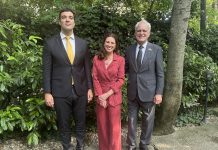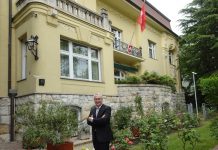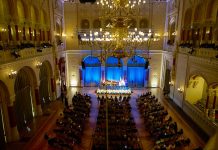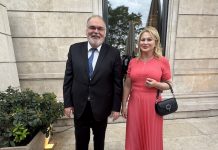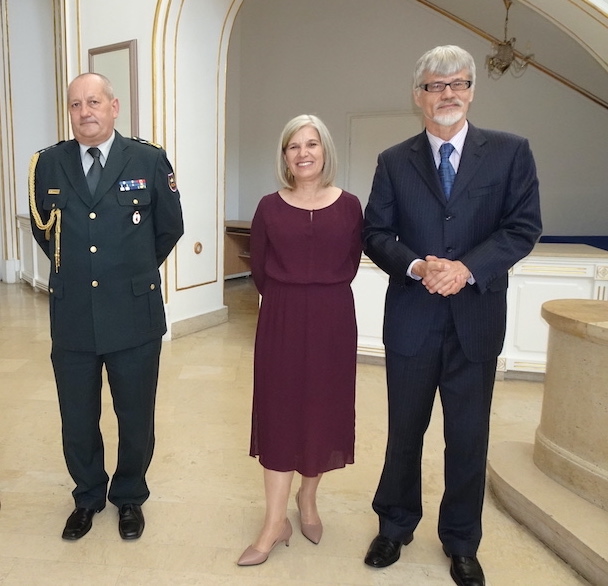“As a member of the UN Security Council 2024-2025, Slovenia will defend topics that connect, not divide”

Edited by Anna Popper
Statehood Day, also known as National Day of Slovenia, is observed annually on 25 June to commemorate the country’s declaration of independence in 1991. Marking this anniversary, H.E. Dr. Marjan Cencen, Ambassador of the Republic of Slovenia to Hungary, and his wife hosted a diplomatic reception at Stefania Palace.



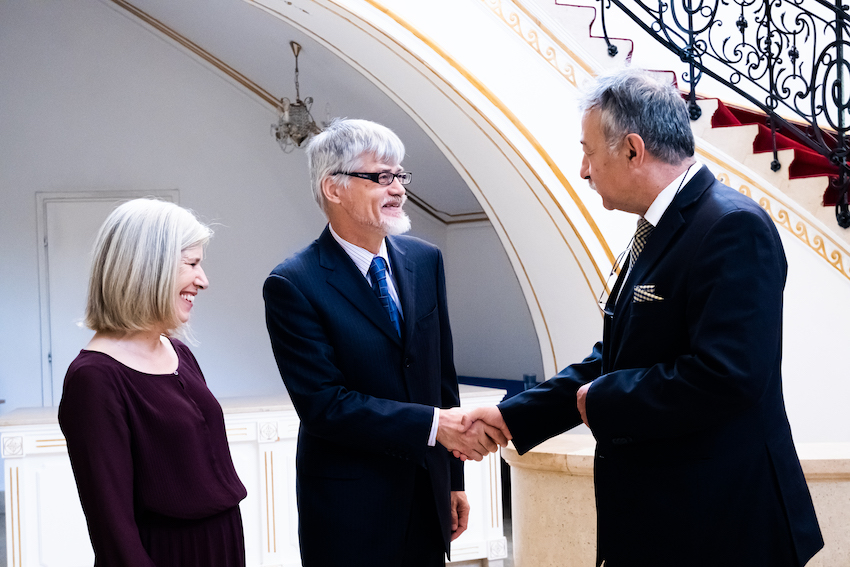
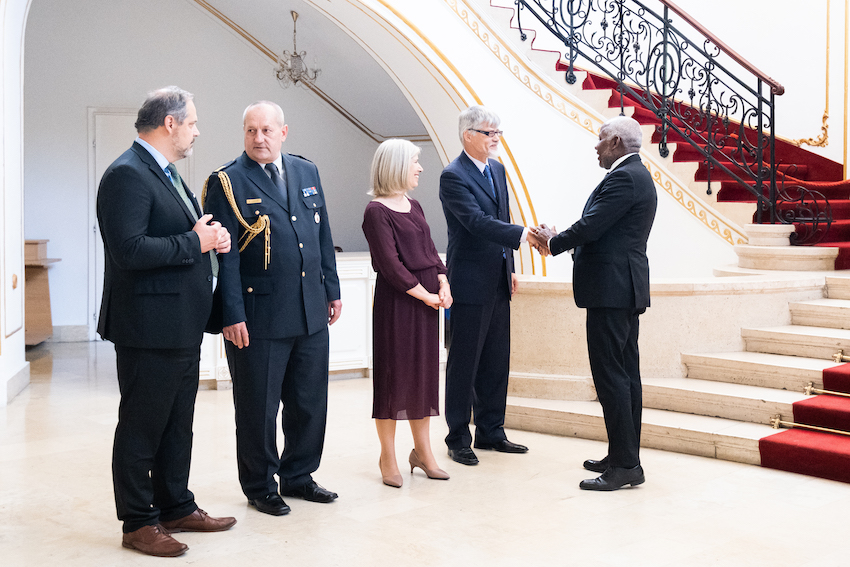
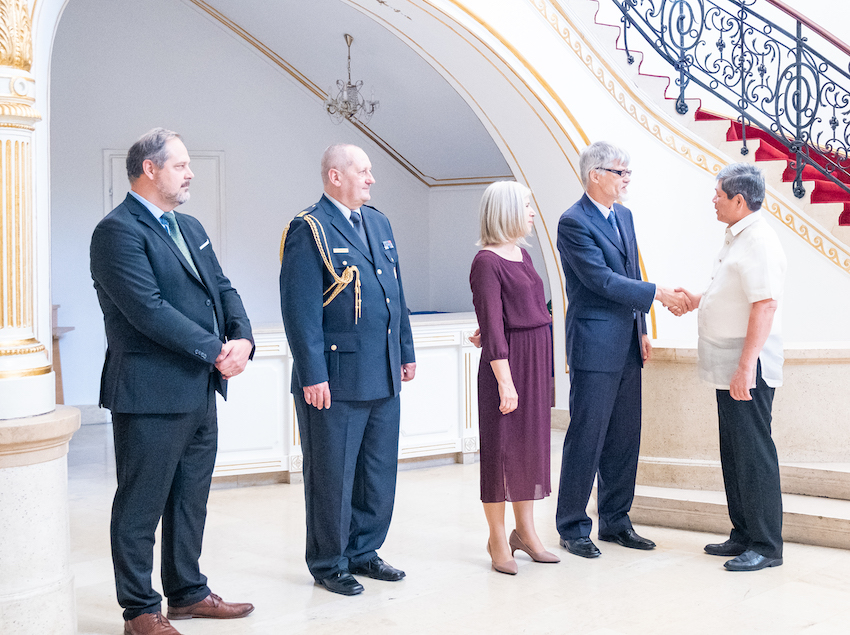
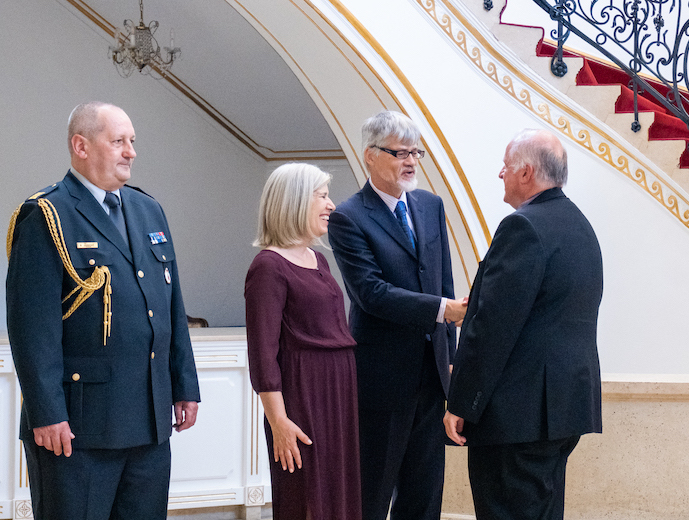
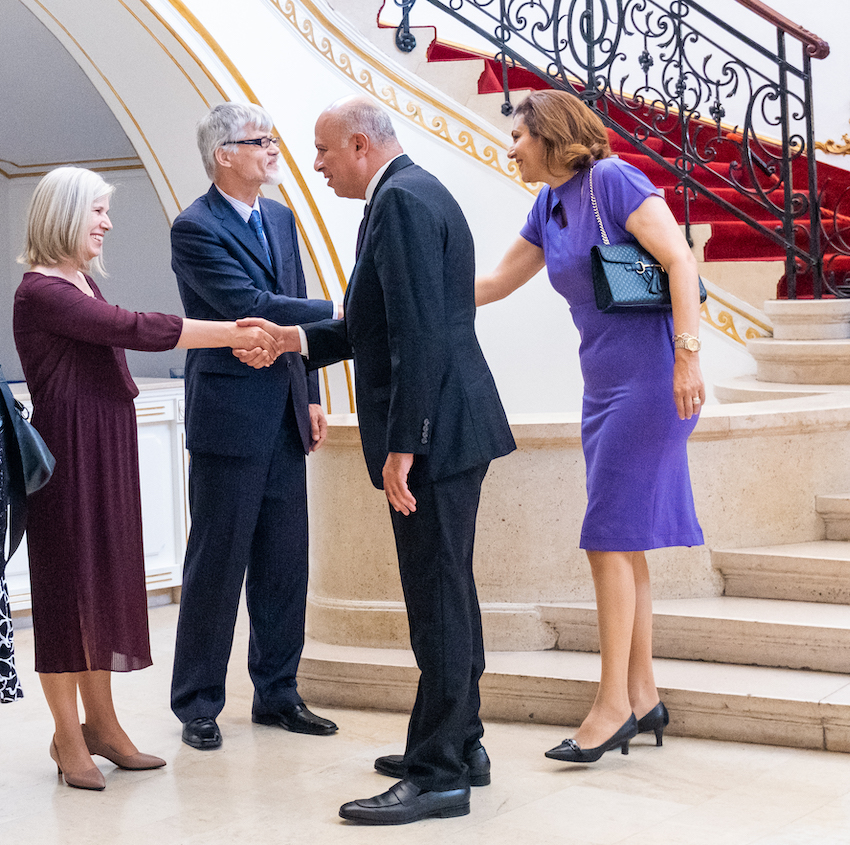
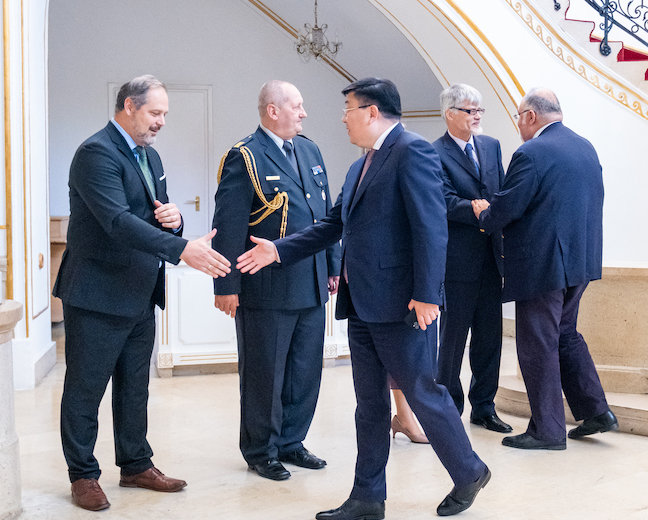
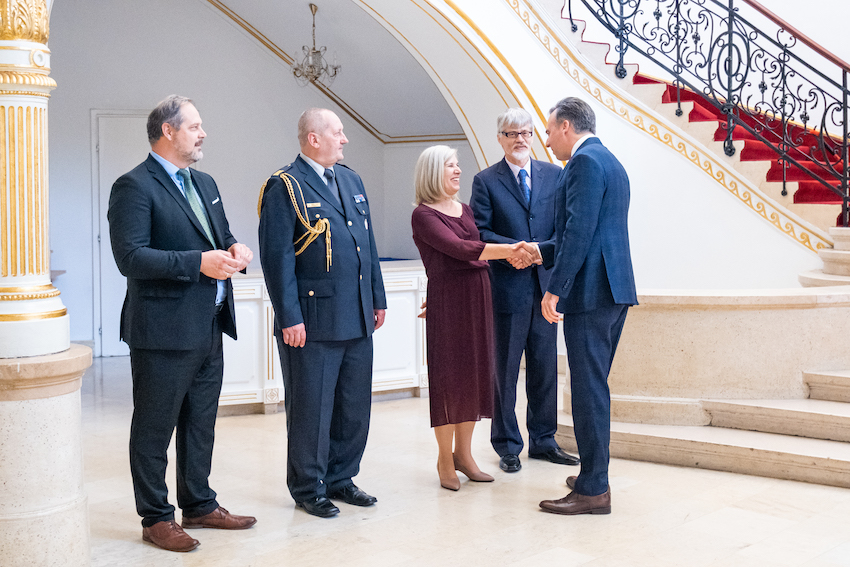
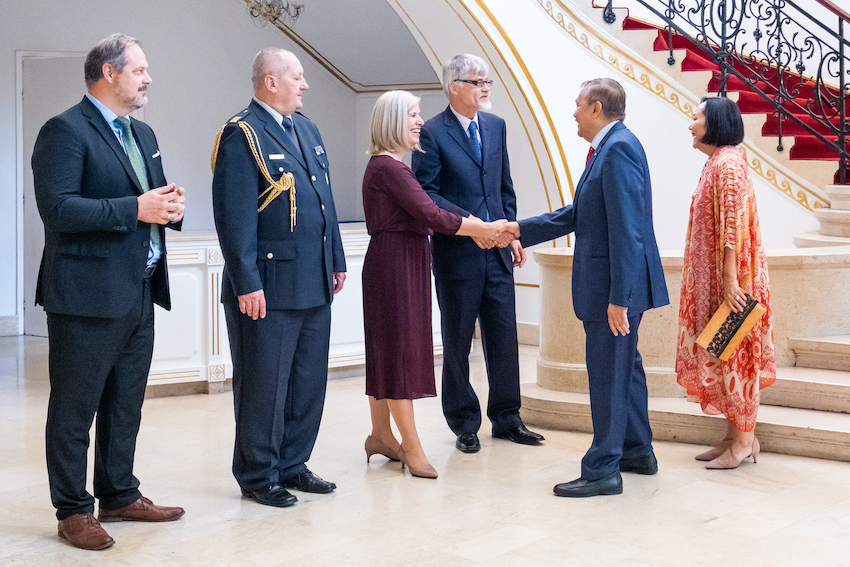
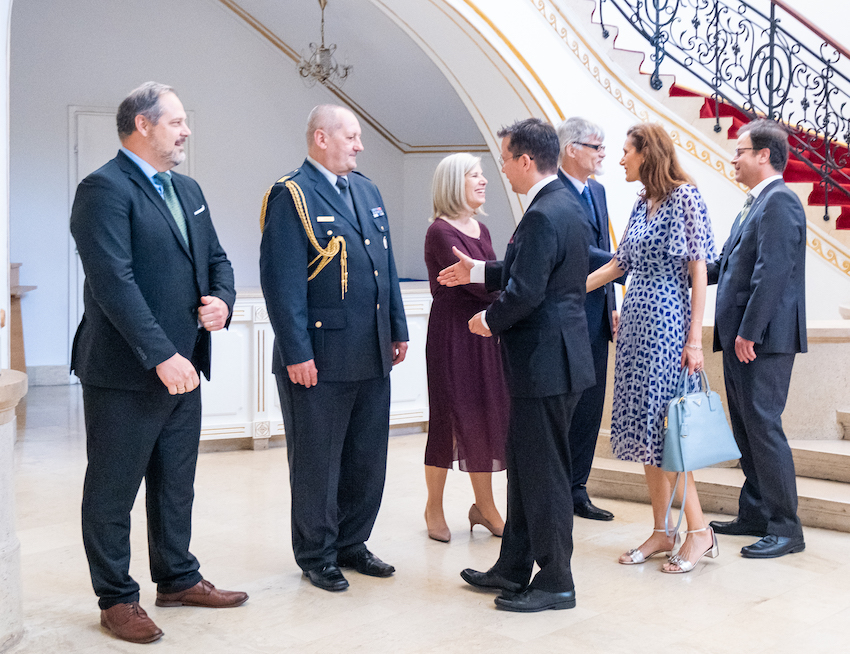
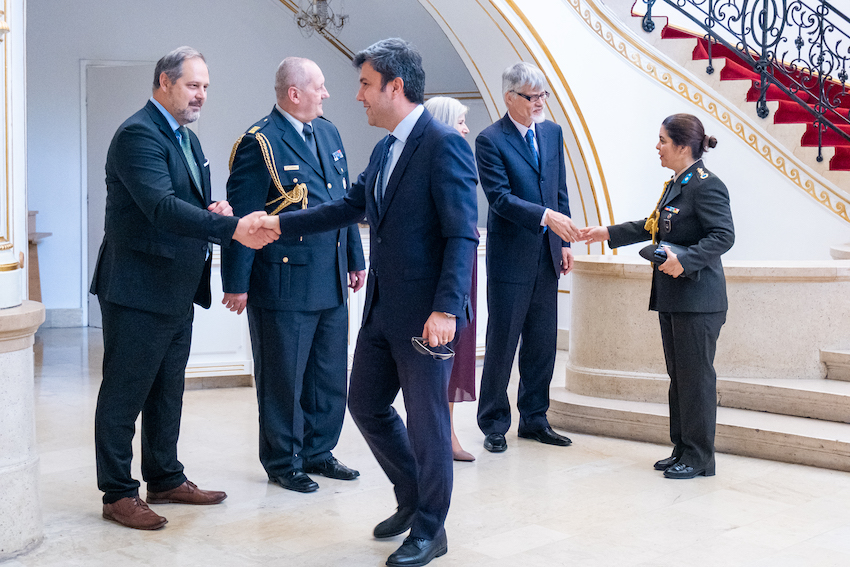
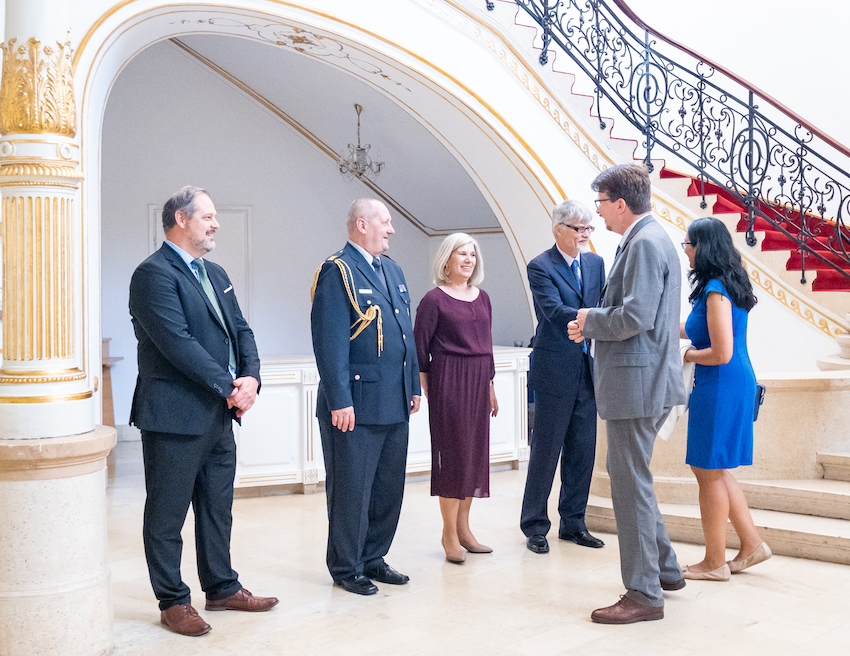
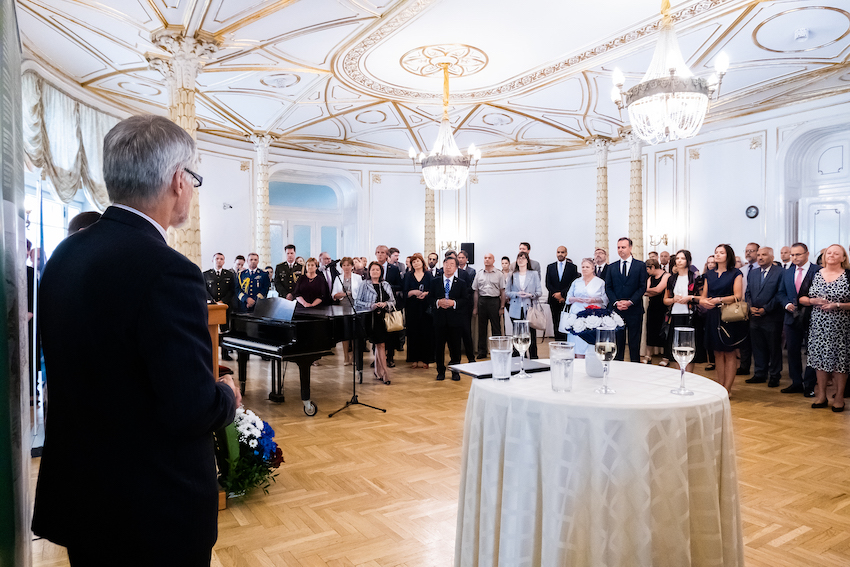


After the national anthems of Slovenia, Hungary and the European Union, the Head of mission took the floor, welcomed the Guest of Honour Mr. Gergely Gulyás, Minister heading the Prime Minister’s Office, the representatives of the Hungarian National Assembly and the Government, members of the Diplomatic Corps and all guests present, including the Slovenian community in Hungary, and addressed the audience:
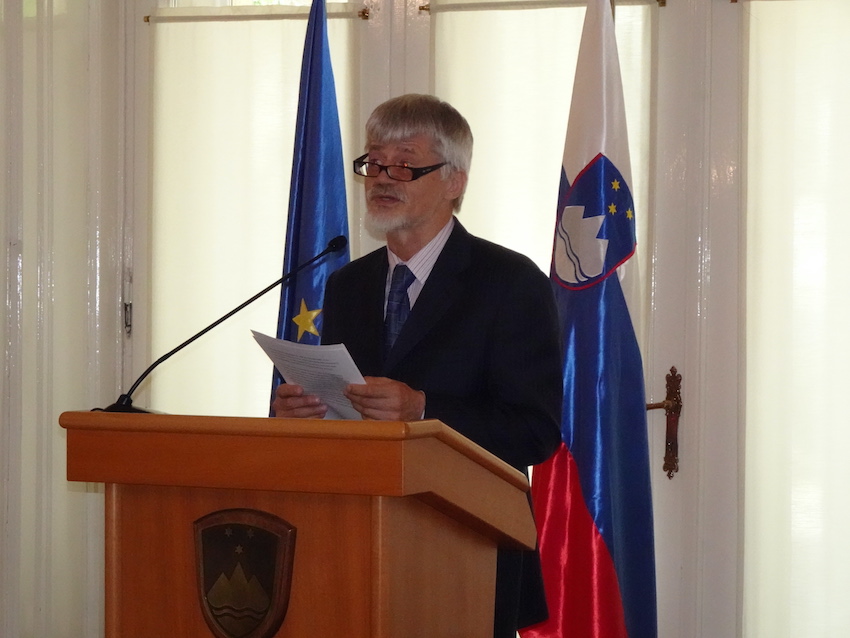
“Celebrating the National Day is something special for every country, but when it comes to a young country like Slovenia, it is even more exceptional. We live in turbulent times, and Slovenia was also born out of turmoil. Nevertheless, after the wars in the Balkans, we believed that we might be able to prevent further conflicts in Europe and that is also why we joined the EU and NATO, which guarantee us economic and social progress and security. Unfortunately, the brutal attack on Ukraine reminded us once again that peace is not self-evident and that we must strive for it all the time together with our friends in the EU and allies in NATO, that includes Hungary.
From the very beginning, Slovenia has been an active and responsible member of the international community that wants to creatively contribute to the peace and well-being of all, which is also what the Slovenian Anthem tells us:
“God’s blessings on all nations,
Who long and work for that bright day
When o’er earth’s habitations
No war, no strife shall hold its sway;
Who long to see
That all men free,
No more shall foes, but neighbours be!”
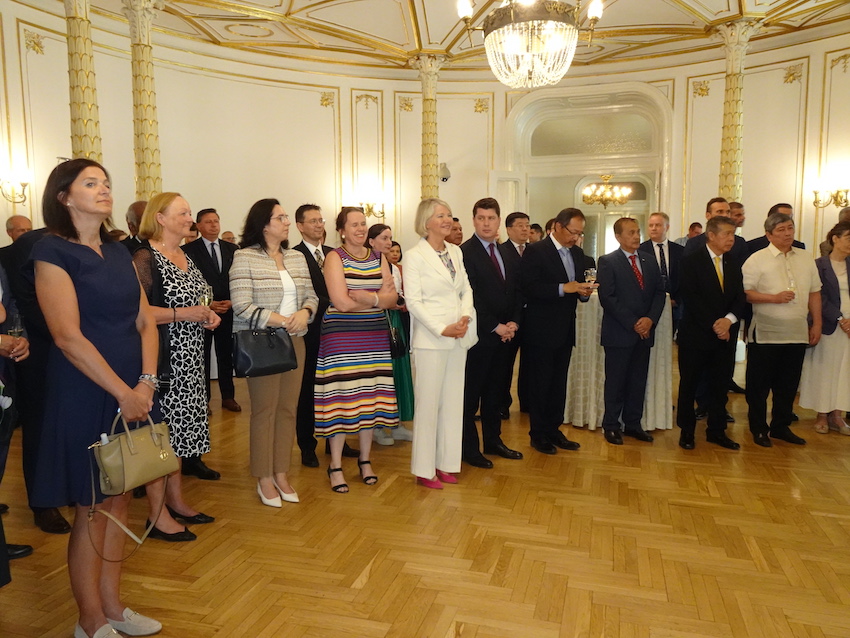
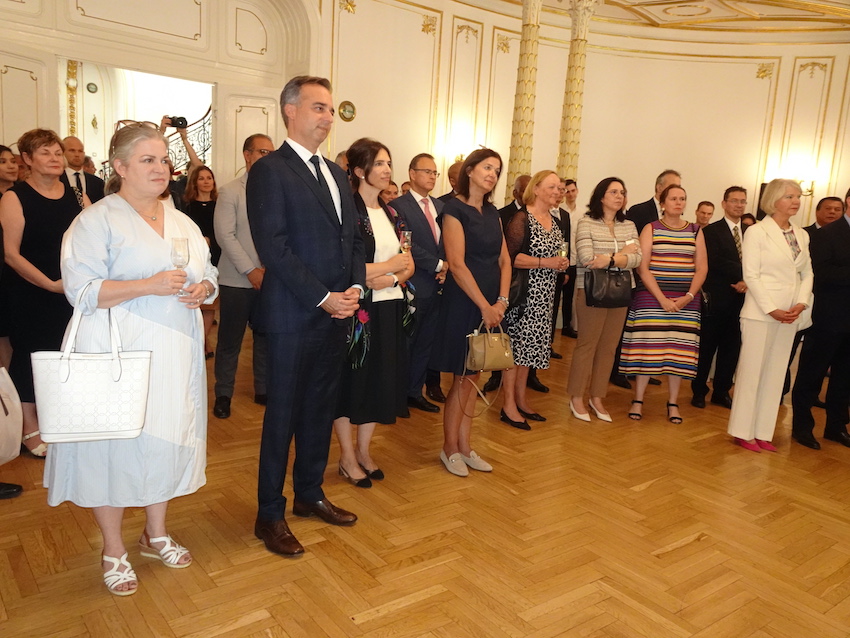
This is also why we decided to run again for a non-permanent member of the United Nations Security Council, and on the 6th June this year we were successful at the elections in New York. Therefore, I would like to thank all the members of the UN who supported us in this vote. As a member of the UN Security Council 2024-2025, Slovenia will defend topics that connect, not divide: climate change & water diplomacy, security, food & energy security, protection of civilians & vulnerable groups in conflicts, and ensuring gender equality.
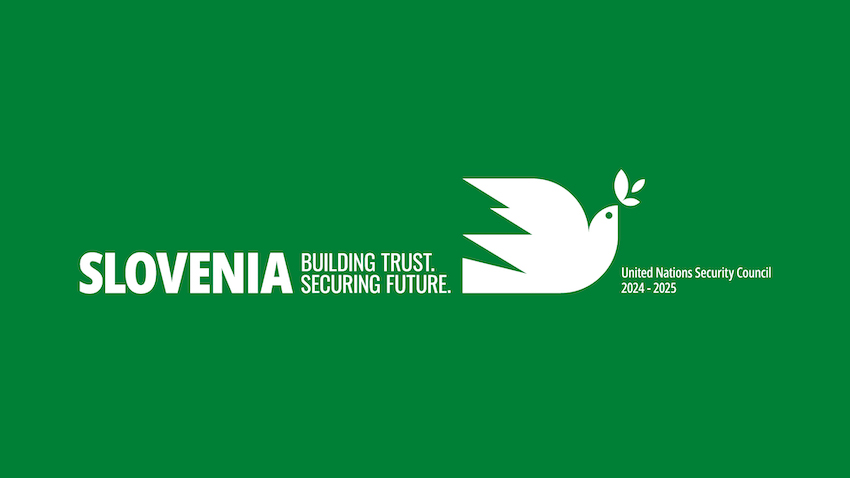
The past year was also very successful in bilateral relations between Slovenia and Hungary. We exchanged two presidential visits, both were the first ones in neighbouring countries after the election of the two female Presidents – Mrs. Nataša Pirc Musar and Mrs. Katalin Novák. By electing women to the highest positions in both countries, we sent a symbolic message about the changes we are witnessing in Central Europe, where our countries both advocate gender equality.
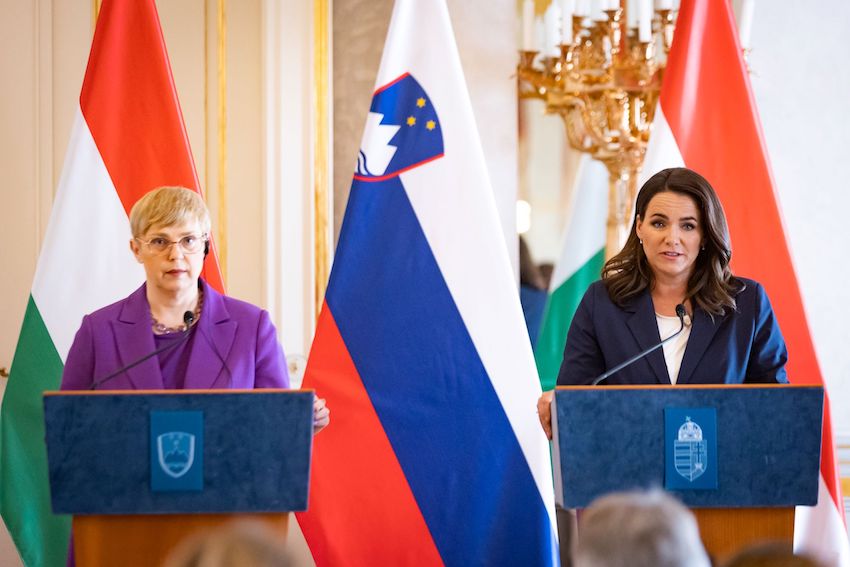
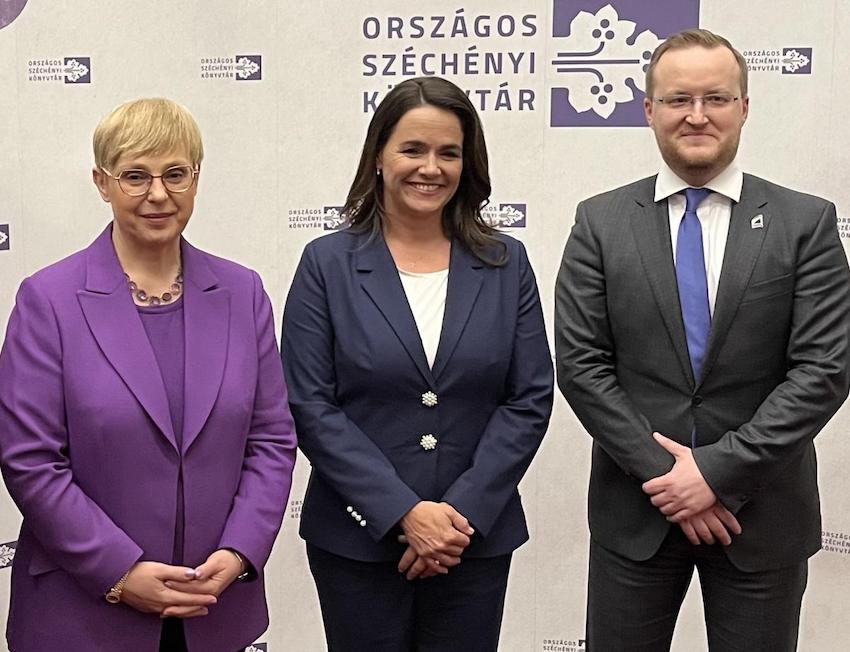
The Prime Ministers of the two countries met in December at the opening of the electric transmission line, which represents the next step towards better connectivity, and hopefully the planned gas pipeline will follow soon. Several ministers also visited Hungary, including Minister of Foreign and European Affairs, Ms. Tanja Fajon, who also attended the C5 ministerial meeting. One of the important results of this meeting was their letter to the European Commission (EC) calling for Bosnia and Herzegovina (BiH) to be granted candidate status for EU membership, which ended successfully.
We are satisfied that Hungary, as a neighbouring country, is taking more active role in the field of economic cooperation, which is also reflected in the recent investments of OTP and MOL in Slovenia. We will strive to have more investments from Slovenia in Hungary as well.
We hosted the Speaker of the Hungarian Parliament, Mr. László Kövér in Slovenia, who later, together with his Slovenian host Ms. Urška Klakočar Zupančič, visited national minority regions in Slovenia and Hungary. On that occasion, among other things, the 30th anniversary of the signing of the agreement on guaranteeing the special rights of the Slovenian national minority in Hungary and the Hungarian national minority in Slovenia was marked. We are pleased that the status of minorities is well regulated between the two countries and that there is a mutual will to further improve it. For this reason, both countries agreed to support economic and social development of the border regions with a special development fund, and an agreement on cooperation between three minority organizations on both sides of the border was also signed this May.
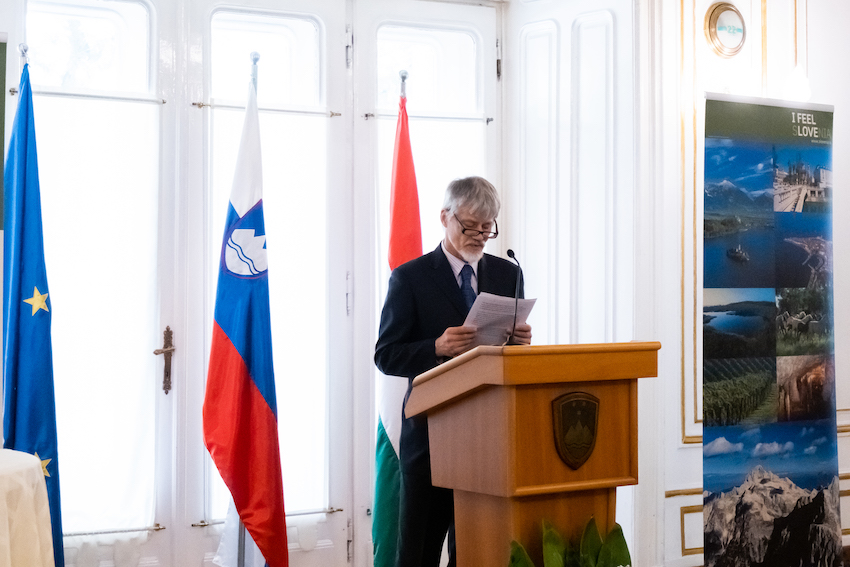
The good cooperation in the cultural sector continues and, among others, the two national libraries signed a cooperation agreement this year. For the first time in history, we simultaneously organised exhibitions of translations of Slovenian authors into Hungarian and Hungarian authors into Slovenian language. Cultural cooperation is also being strengthened in cooperation between cities, as this year we unveiled a monument to the Hungarian poet Sándor Petőfi in Slovenia, and we are preparing to unveil a monument to his Slovenian peer and author of the Slovenian national anthem, France Prešeren, in Hungary. Both Petőfi and Prešeren made a major contribution to the awakening of national consciousness in the 19th century.
I would also like to mention defence, where our countries – allies in NATO – cooperate closely. On this occasion let me express my condolences for the victims of the helicopter accident in Croatia. Slovenia is participating in the centre for heavy lifting in Pápa. Given that we also have defence attachés present today, allow me to mention that on 15 May the Slovenian Armed Forces celebrated its 30th anniversary. They were officially formed in 1993 as a reorganization of the Slovenia Territorial Defence Force. When Slovenia formally joined NATO in March 2004, the transition began from a primarily conscript-based territorial defence organization to a professional force structure.
As a member of the United Nations, NATO and the European Union, Slovenia supports the efforts of these organizations in international missions and operations and has participated in various missions since 1997. The Slovenian Armed Forces participate in 13 military operations and missions and deploy around 5% of its active component. The Western Balkans is our special priority, however we are strong advocates of NATO’s 360 degree approach and have stationed Slovenian Armed Forces on the Alliance’s eastern flank as well as in the south.
Finally, I would like to thank the supporters of today’s event, such as ETI and Jožef Koruncij, to my colleagues at the Embassy who worked tirelessly to prepare today’s reception, to the musicians Ms. Nataša Lazič and Ms. Mariam Bughadze, and to all of you who have dedicated some of your time to celebrate our National Day with us. Thank you!”
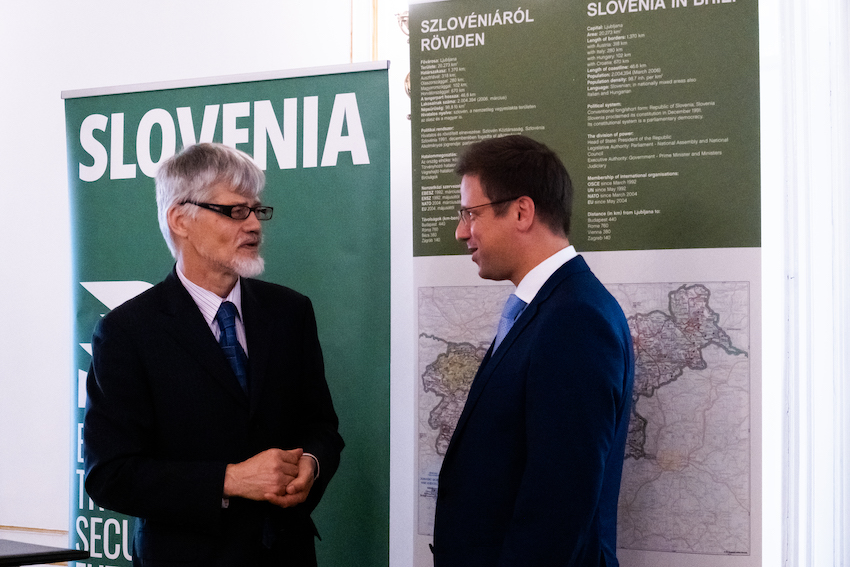
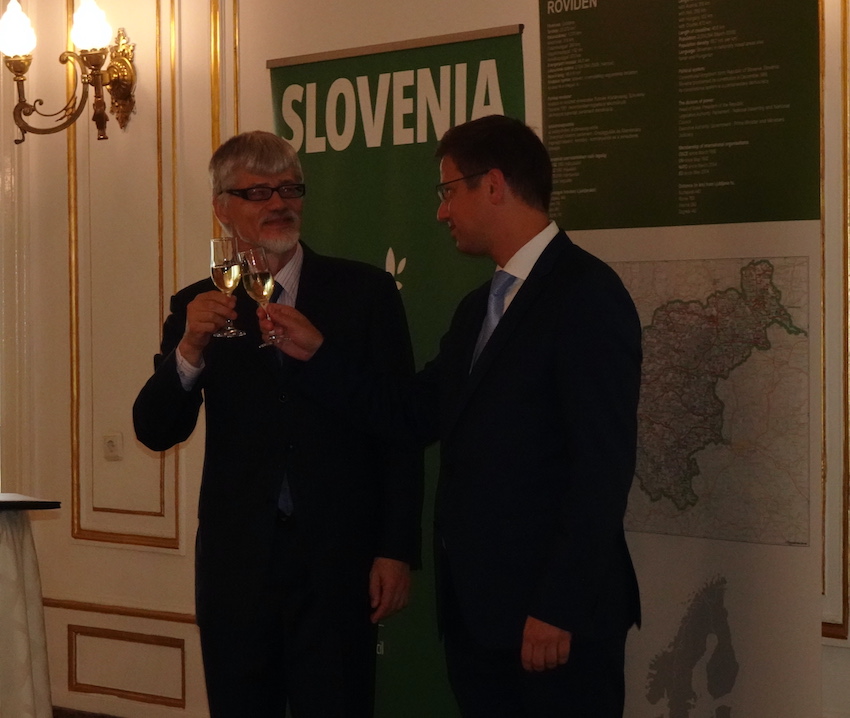
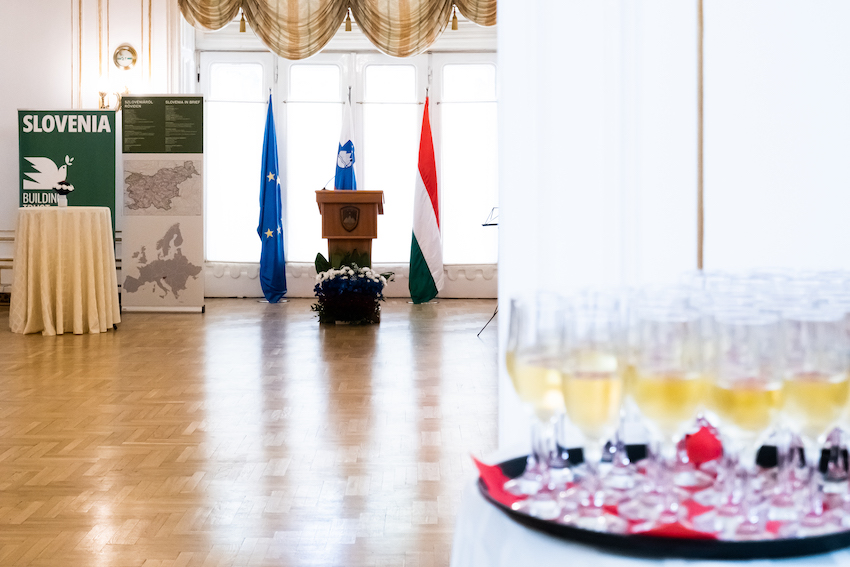
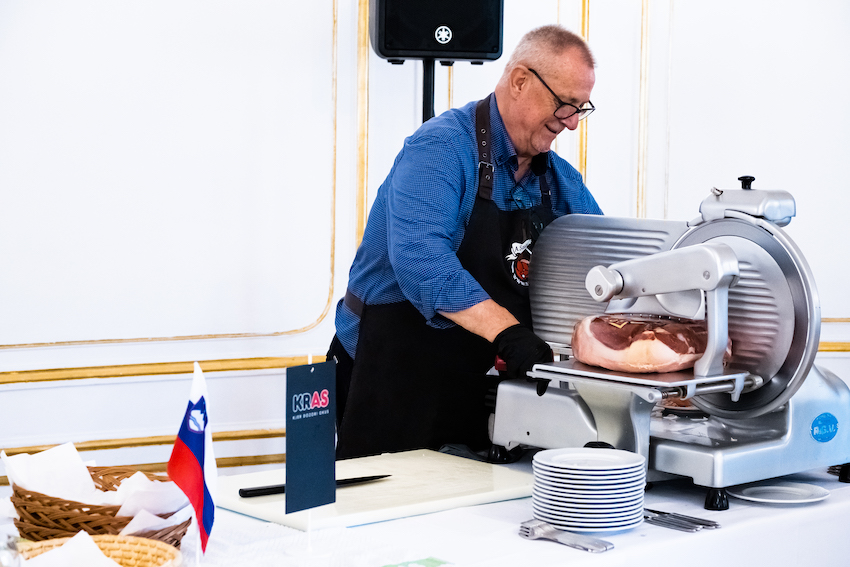
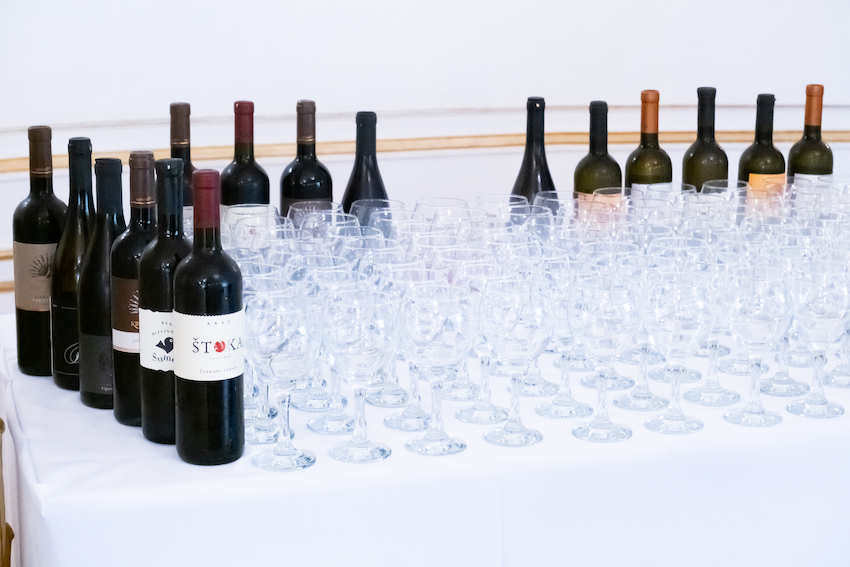
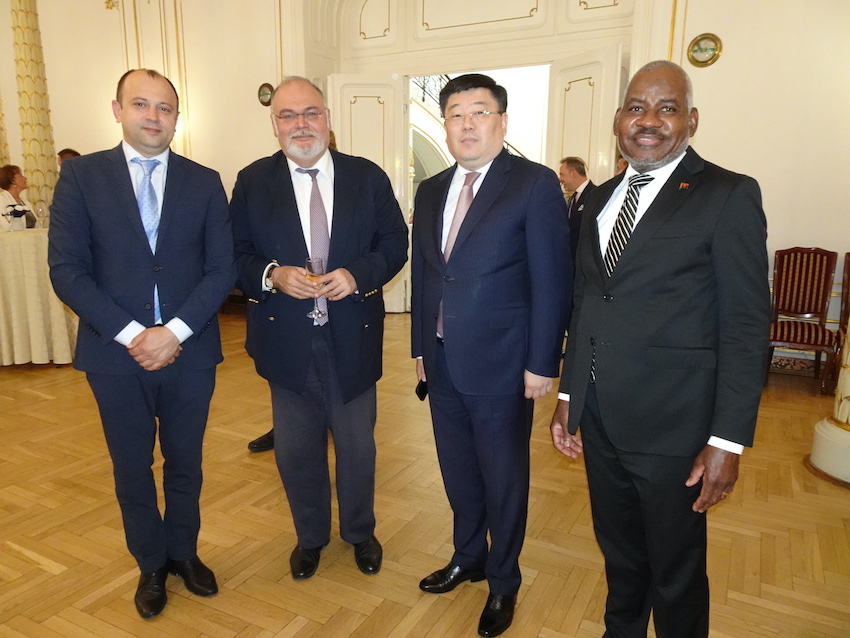
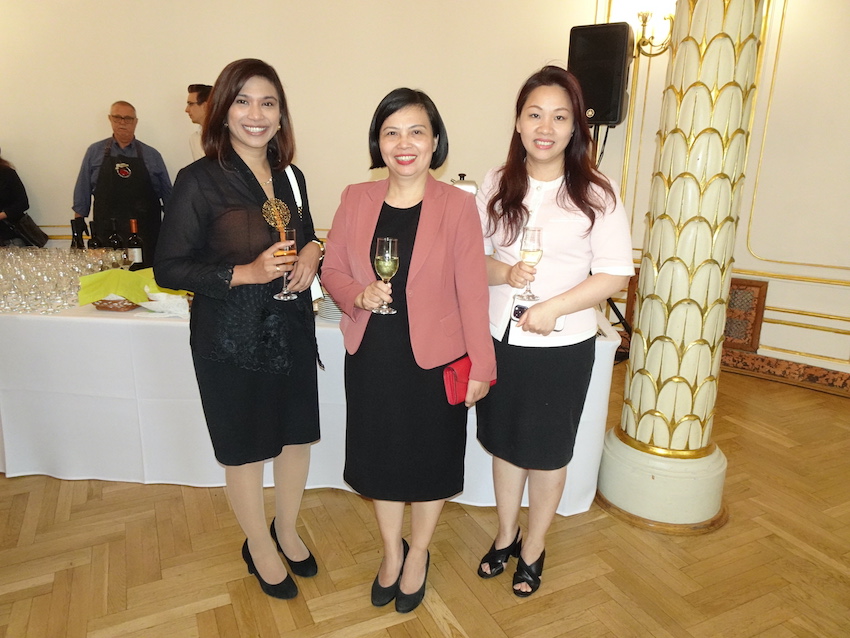
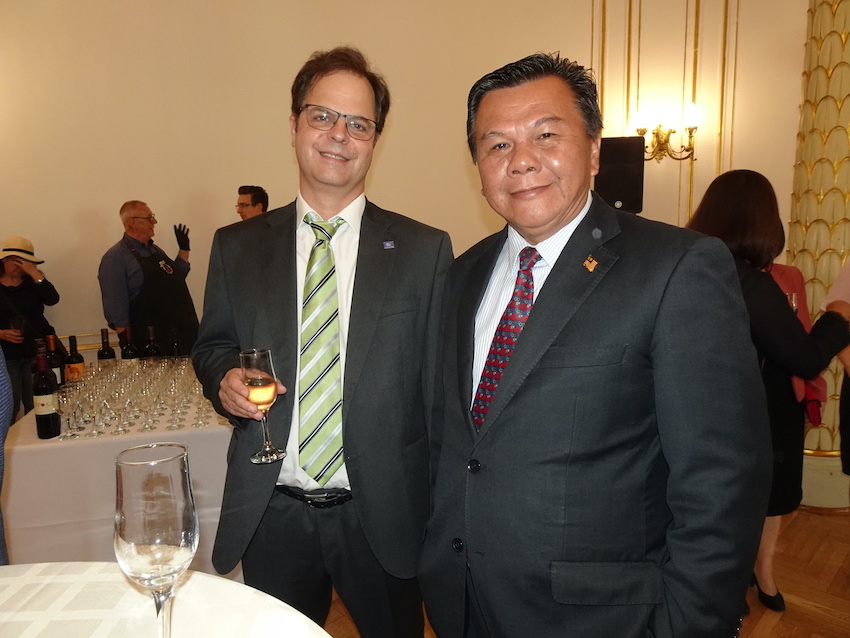
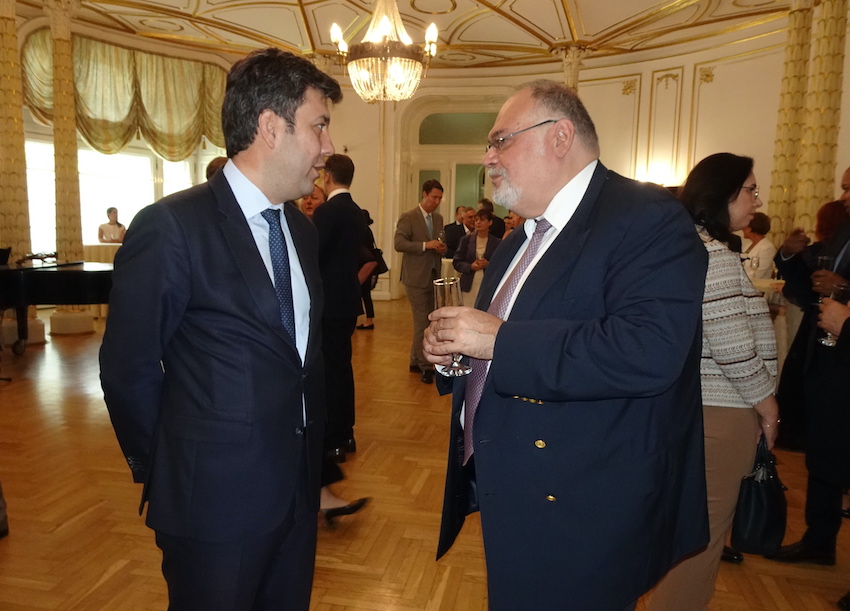
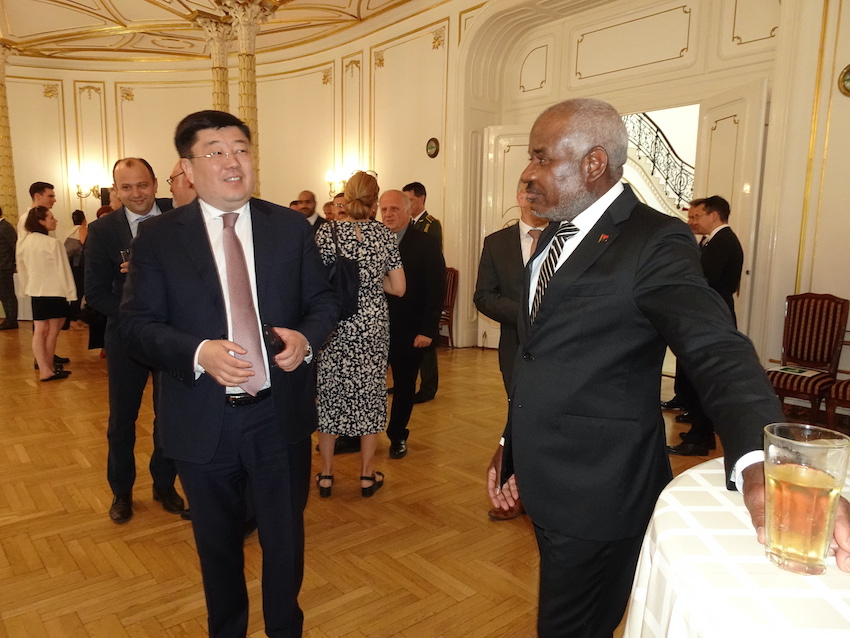
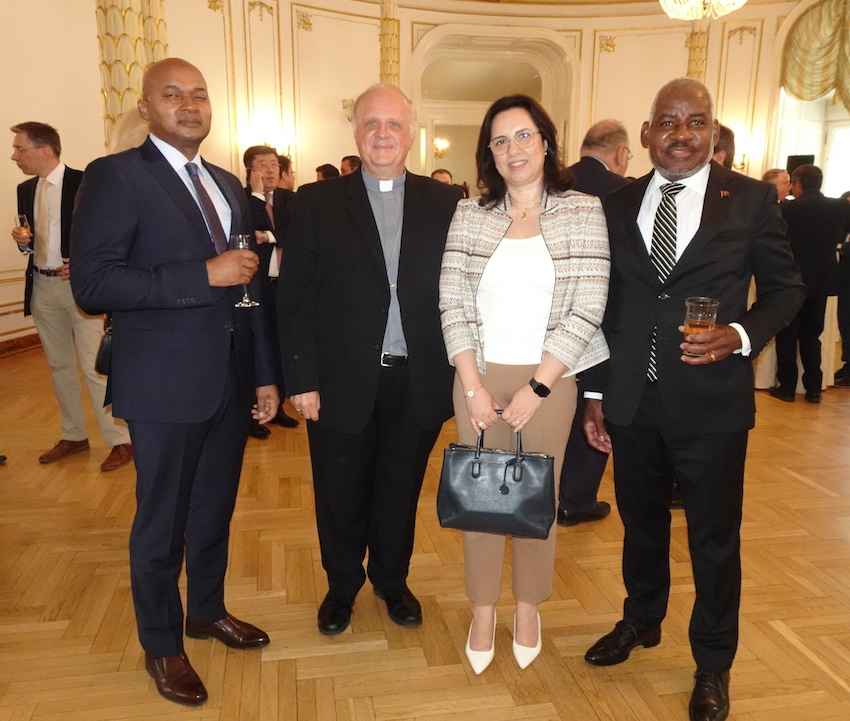
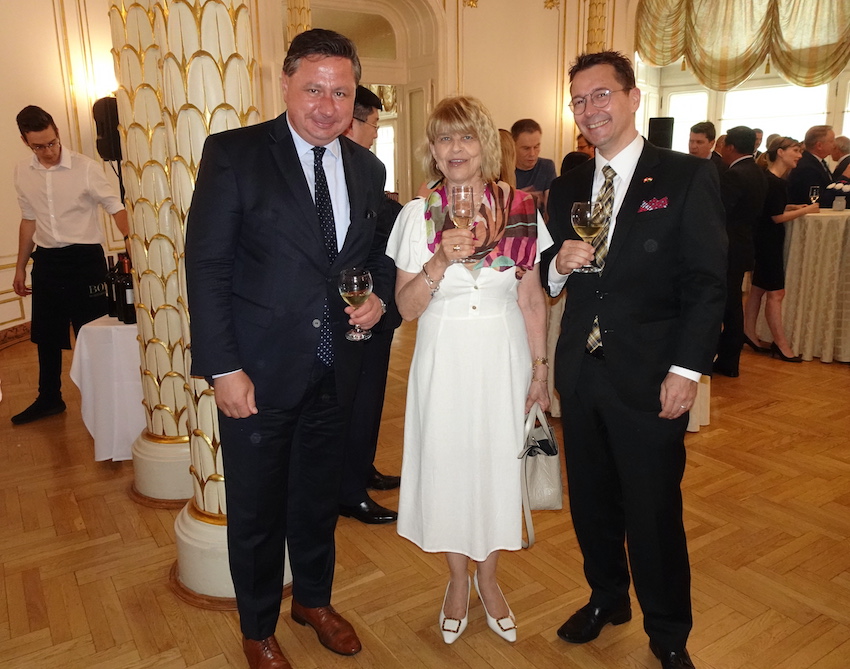
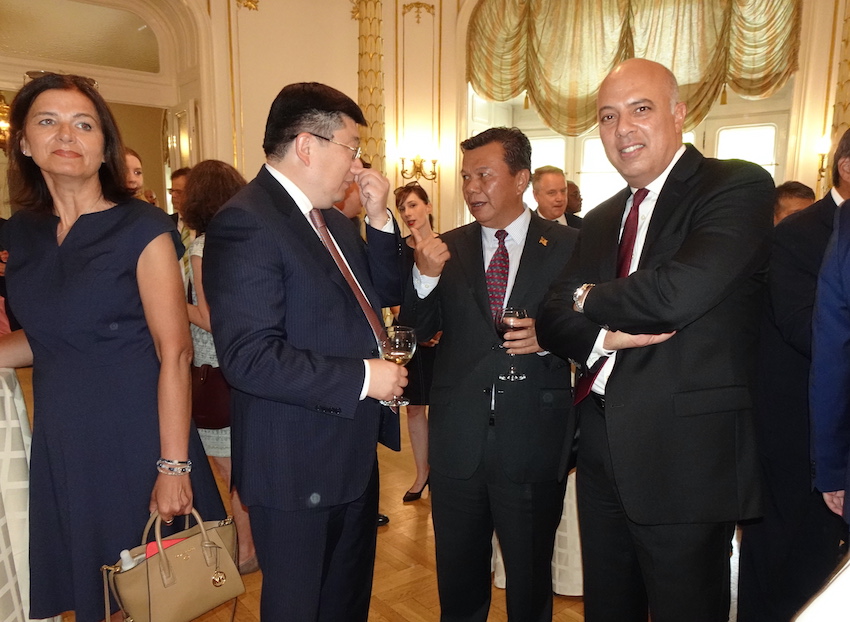
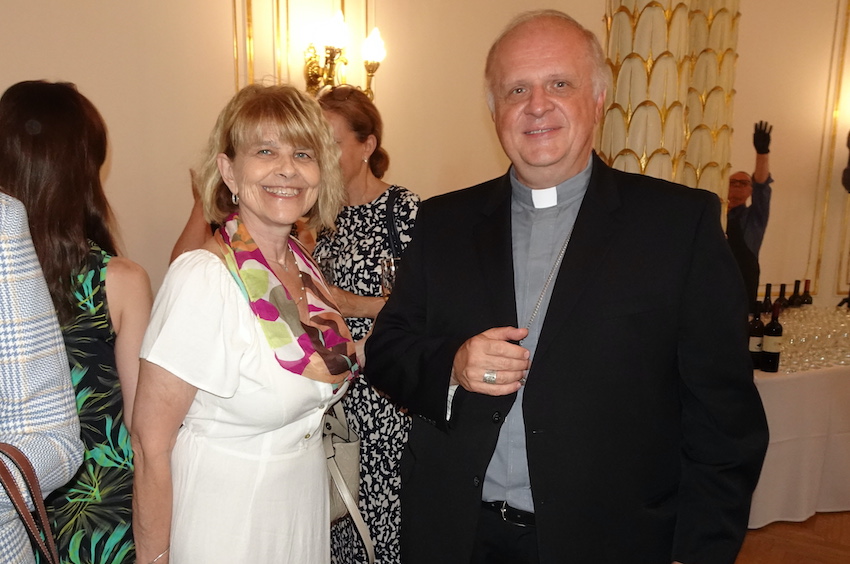
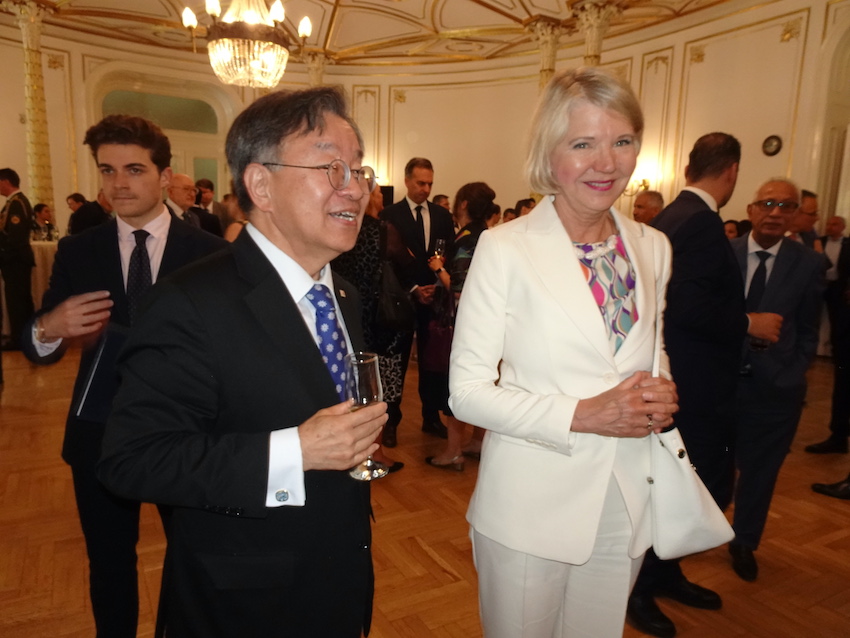
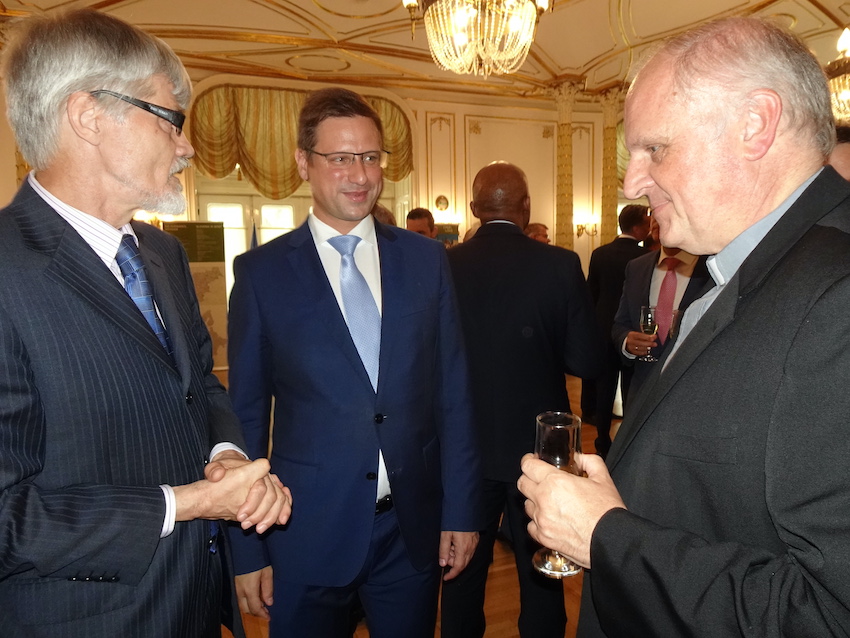
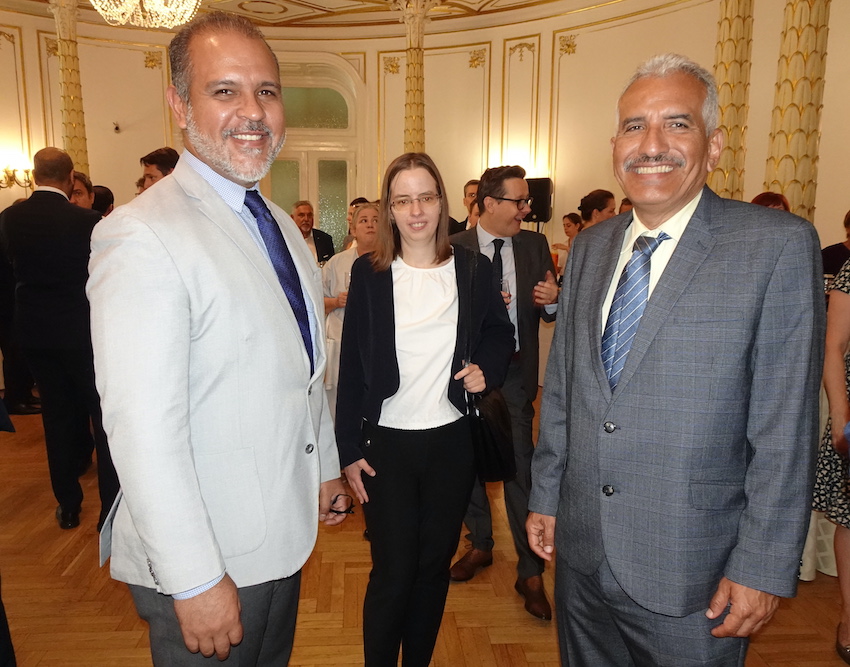
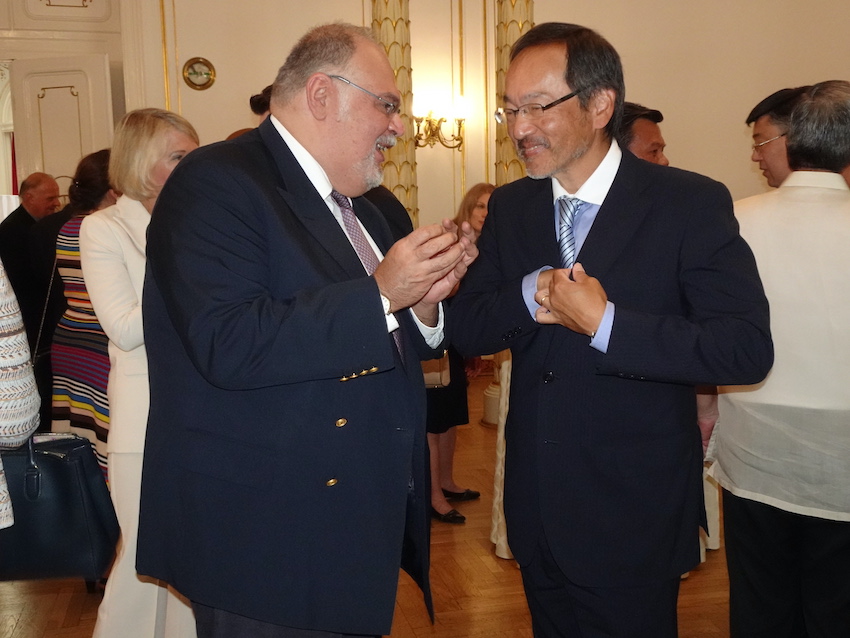

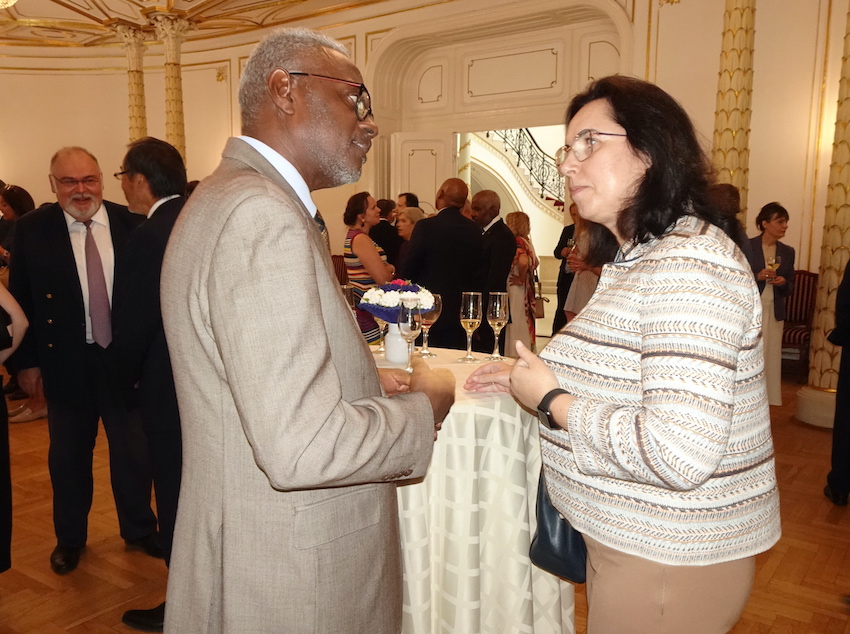
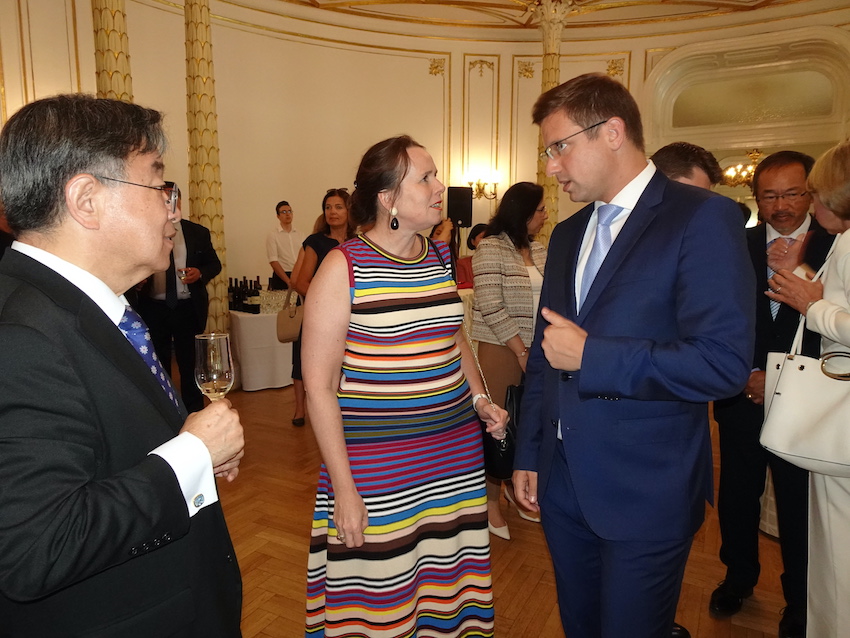

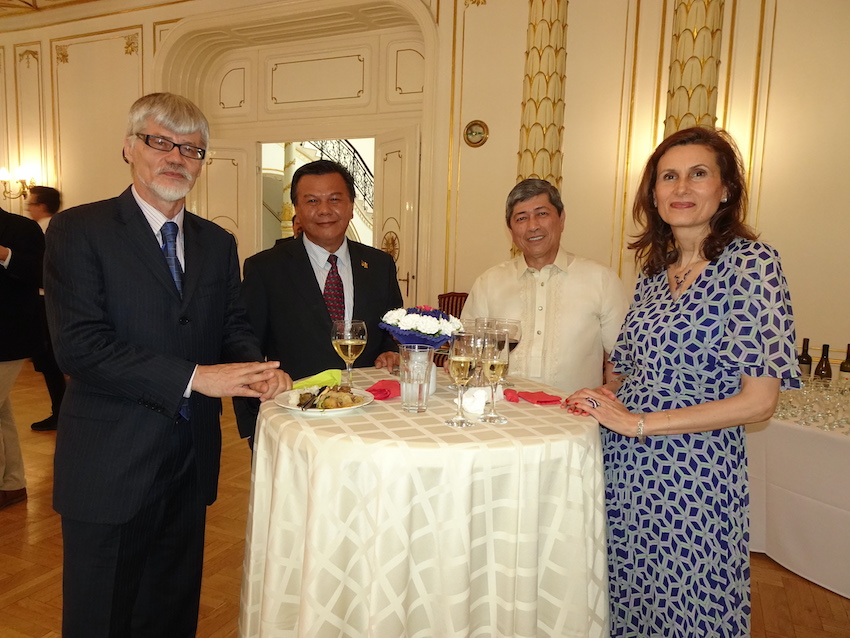
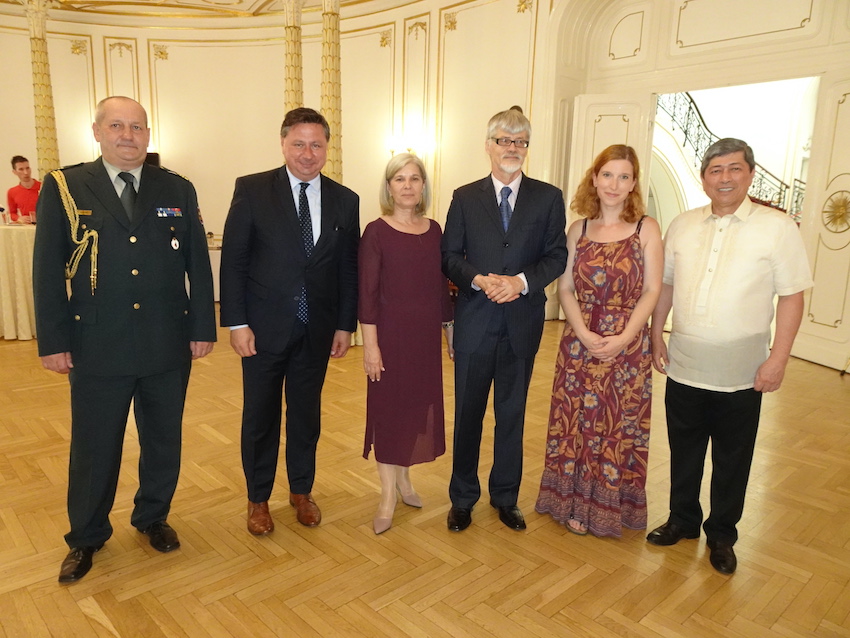
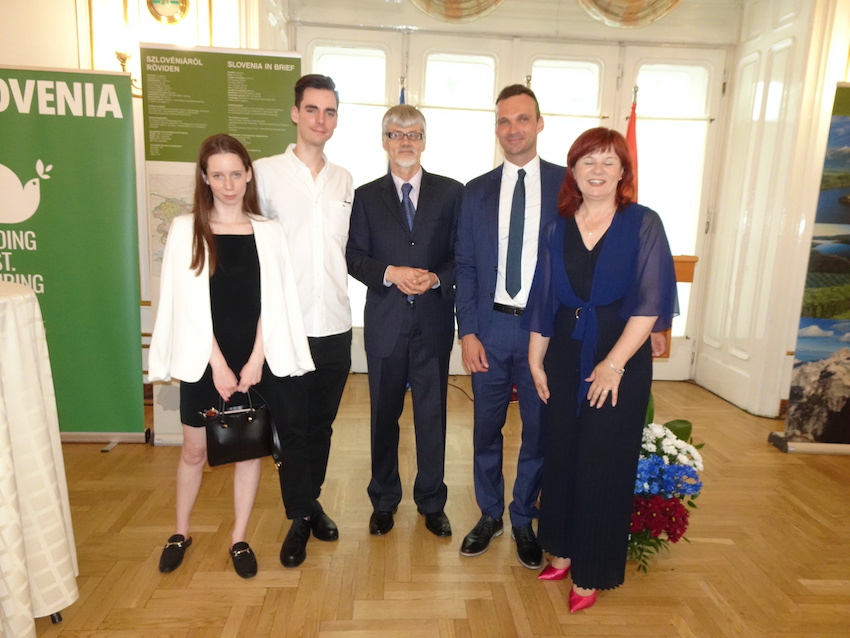
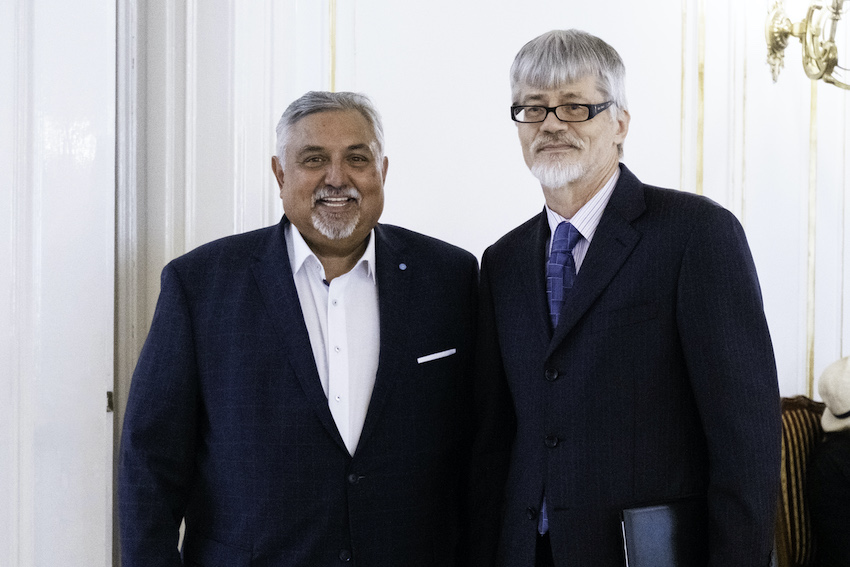
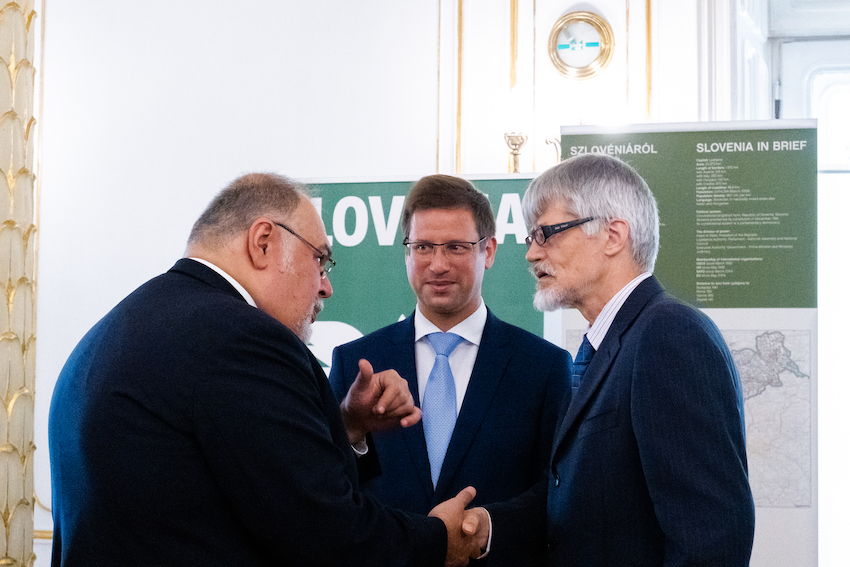
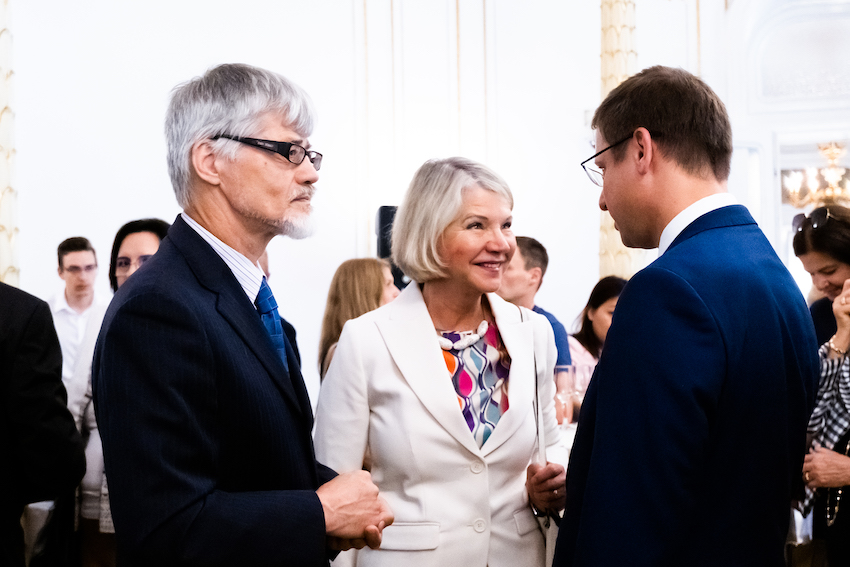
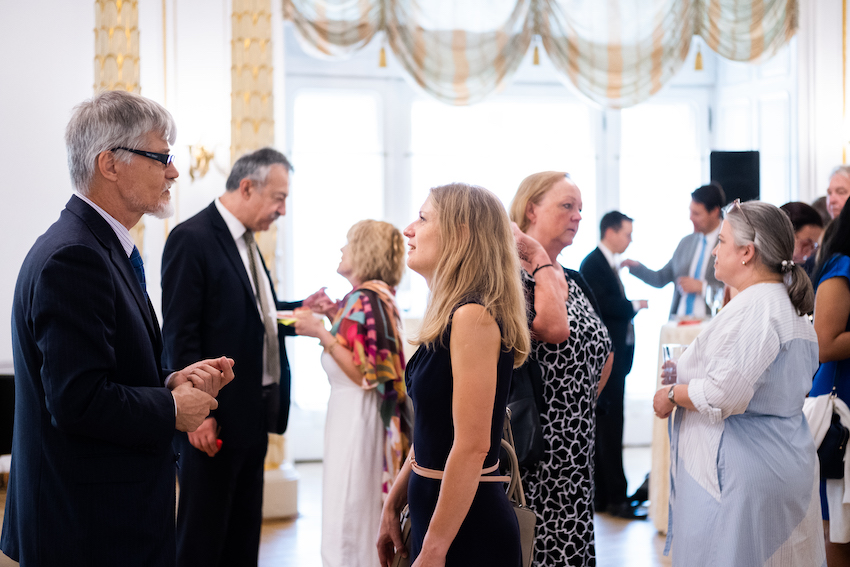
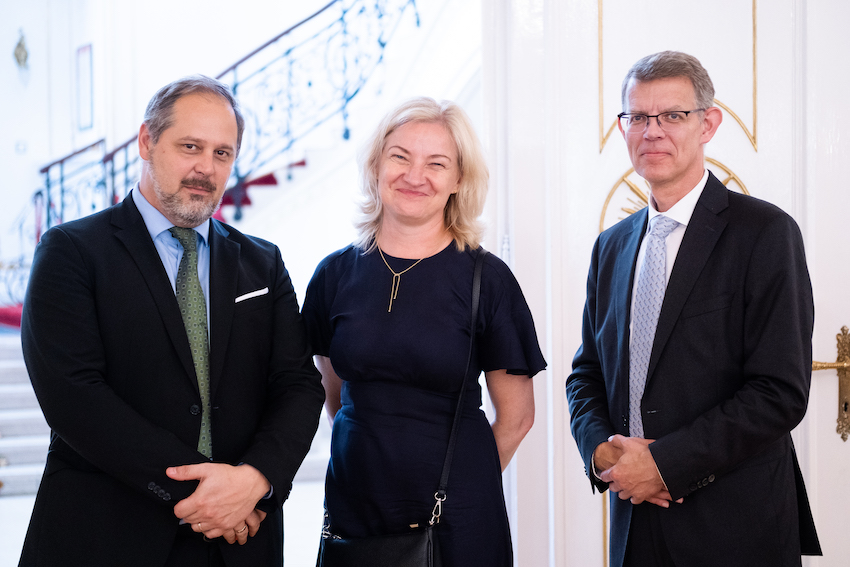
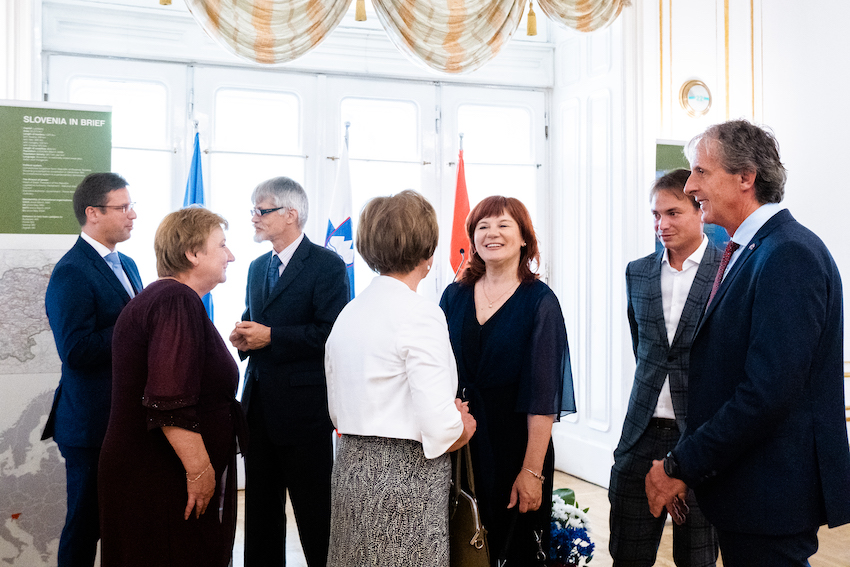
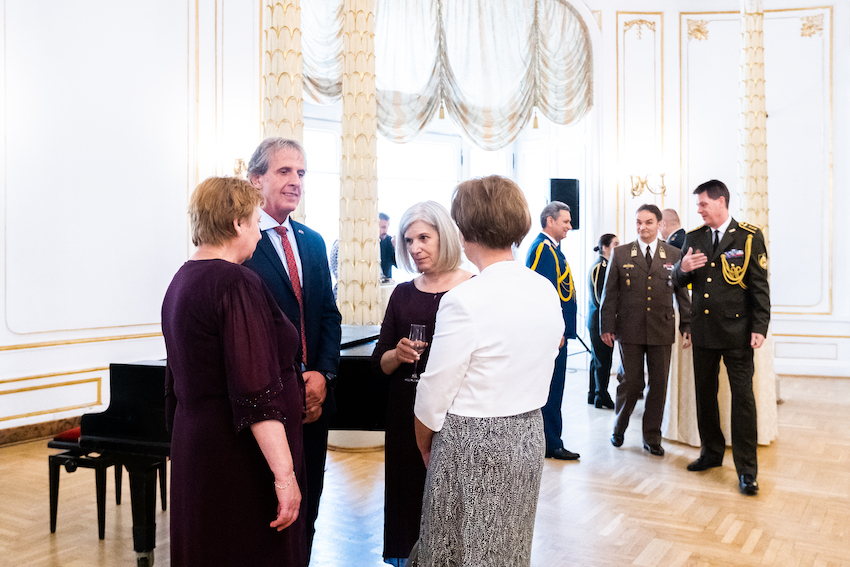
On the occasion of the 30th anniversary of establishing diplomatic relations between Hungary and Slovenia, which was marked last year, the National Széchényi Library staged an exhibition entitled “Vivat Slovenia! / Vivat Slovenija!”. The exhibition was opened on 20 April 2023 by the President of Slovenia, Mrs. Nataša Pirc Musar and the President of Hungary, Mrs. Katalin Novák.
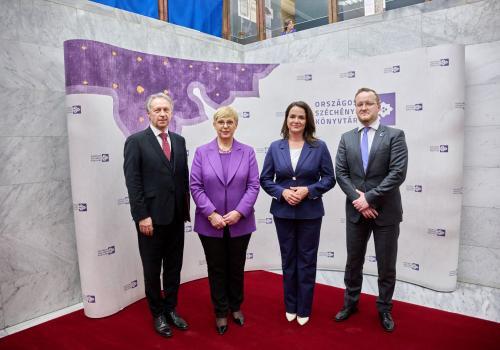
Photos: Sándor Palace, National Széchenyi Library, DPA

